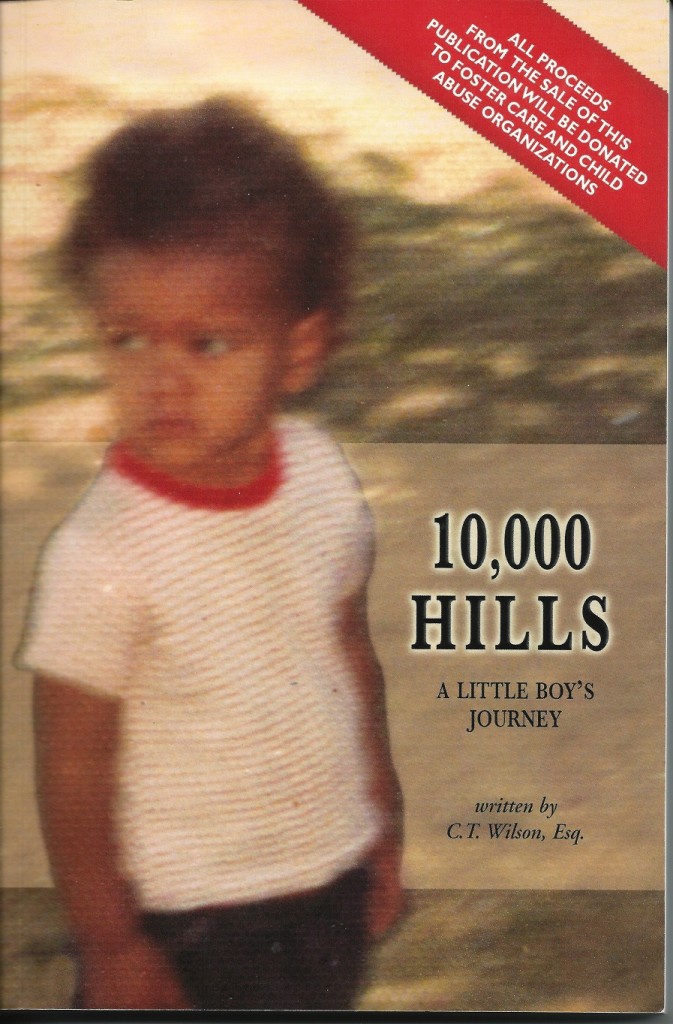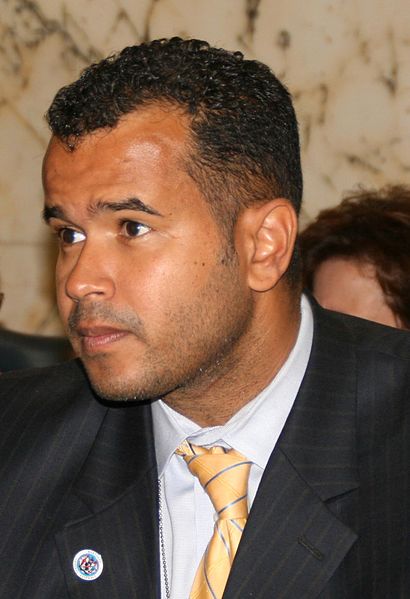From a childhood of abuse to state delegate: C.T. Wilson’s painful story
By Margaret Sessa-Hawkins
 The first instance of sexual abuse recounted in “10,000 Hills: A Little Boy’s Journey,” is detailed, graphic, and emotionally raw. The episode illustrates the tone of the entire book, written and recently self-published by Del. C.T. Wilson, a Democrat from Charles County.
The first instance of sexual abuse recounted in “10,000 Hills: A Little Boy’s Journey,” is detailed, graphic, and emotionally raw. The episode illustrates the tone of the entire book, written and recently self-published by Del. C.T. Wilson, a Democrat from Charles County.
The book recounts the years of abuse Wilson suffered both in the foster care system as well as after he was adopted, and it is painfully forthright. For Wilson, this honesty came at a price.
“Writing the book was far from cathartic,” he said. “It was probably one of the worst experiences of my life — and that’s including war. I had done a very good job of segmenting my memories, and basically forgetting. A lot of things I had forgotten until I started digging.”
Looking at Wilson now, it is hard to imagine him undergoing such a struggle. He is, to all appearances, an ordinary person living a fairly successful life.
Wilson is an Army veteran, a lawyer who helped found the Community Prosecution Unit of the Prince George’s County State’s Attorney’s Office, and the first black delegate elected in Charles County. He has a wife and three children.
Suffering pushed to success
Paradoxically enough, it is much of what Wilson suffered in his childhood that has pushed him to become the successful individual he is today.
“I couldn’t say that I would take away any one part of it because all that is what makes me who I am,” Wilson said. “I’m not a gifted individual, I’m just a regular person. I think we need more regular people that have had issues in elected offices because you have actually been there.”
“I’m the chair of the veteran’s caucus because I was a veteran. And when I talk about foster care it’s not something I’ve decided to latch on to make myself feel good. I know what it’s like, I’ve been there,” he said.
It is this element of actually having experienced the issues he is writing about that makes 10,000 Hills so potent. (Excerpts from the book can be read on the Amazon.com website.)
It is one thing to understand that children suffer in the foster system, another to read the memories of a boy being torn from one family and placed with another, all without ever being told when he would move, or why.
It is one thing to understand that roughly 90% of children who are sexually abused already know their abuser, another to read the personal accounts of a man who says he was repeatedly assaulted by his adoptive father for years, and only escaped when he joined the army at 18.
“I just want to let people know that this happens,” Wilson said. “I think one of the biggest reasons this happens is because it’s kept quiet.”
Long-term damage of abuse
However, the book goes beyond simply chronicling events that are usually hidden. The book also examines long-term damage of abuse on a victim, and looks at the many ways victims cope with this damage. It explores the foster care system and its role in removing children from — and occasionally inadvertently placing children in — abusive situations.
With this in-depth look at the subject, the book presents a comprehensive and informative picture of abuse. Even Wilson’s wife, Nicole, says that although she knew about Wilson’s experiences beforehand, reading the book helped her gain a broader understanding of his situation in particular, and of abuse in general.
“I remember after I finished [the book] driving past the local high school and wondering how many kids are walking home to a life of a abuse,” Nicole Wilson said. “How horrible is that in this day and age? It’s such a hard topic to talk about because it’s usually someone in the family, but what happens to those kids who suffer through that, how does that shape them?”
Solutions not offered
While Wilson’s book raises many issues for people to think about, one thing it does not do is offer many solutions. Although the profits from the book will go to foster care and adoption organizations, and Wilson hopes the book will help make people aware of the issues associated with foster care and abuse, that’s as far as he goes. Nowhere in the book is there a section filled with suggestions or solutions for the many problems he brings to light in his memoir.
“I don’t know the solutions,” Wilson explained. “But I know you’ll never find them if you don’t look. That’s all I want us to do is look. Ask some foster kids what will make it better. I was in years ago, so even my viewpoints are incorrect, because it’s a new system. I know from the children I’ve talked to that it’s still very broken, but the solutions themselves, I don’t know. This book is just to raise the questions.”
Even if the book is not widely read cover to cover (and Wilson is very frank about the possibility that it might not be) and even if the book does not substantially raise awareness of abuse, Wilson still hopes it can reach out and help individuals in other ways.
“There’s a lot of kids in our country that go through this, and I didn’t want them to be alone,” he said. “I think that’s the most devastating part of abuse and neglect is assuming that you are by yourself, and no one else can possibly feel what you feel. And I wanted people — namely adults who have gone through this – to realize they are not alone, and they don’t have to be failures. That your past doesn’t have to delineate your future.”

MarylandReporter.com is a daily news website produced by journalists committed to making state government as open, transparent, accountable and responsive as possible – in deed, not just in promise. We believe the people who pay for this government are entitled to have their money spent in an efficient and effective way, and that they are entitled to keep as much of their hard-earned dollars as they possibly can.

